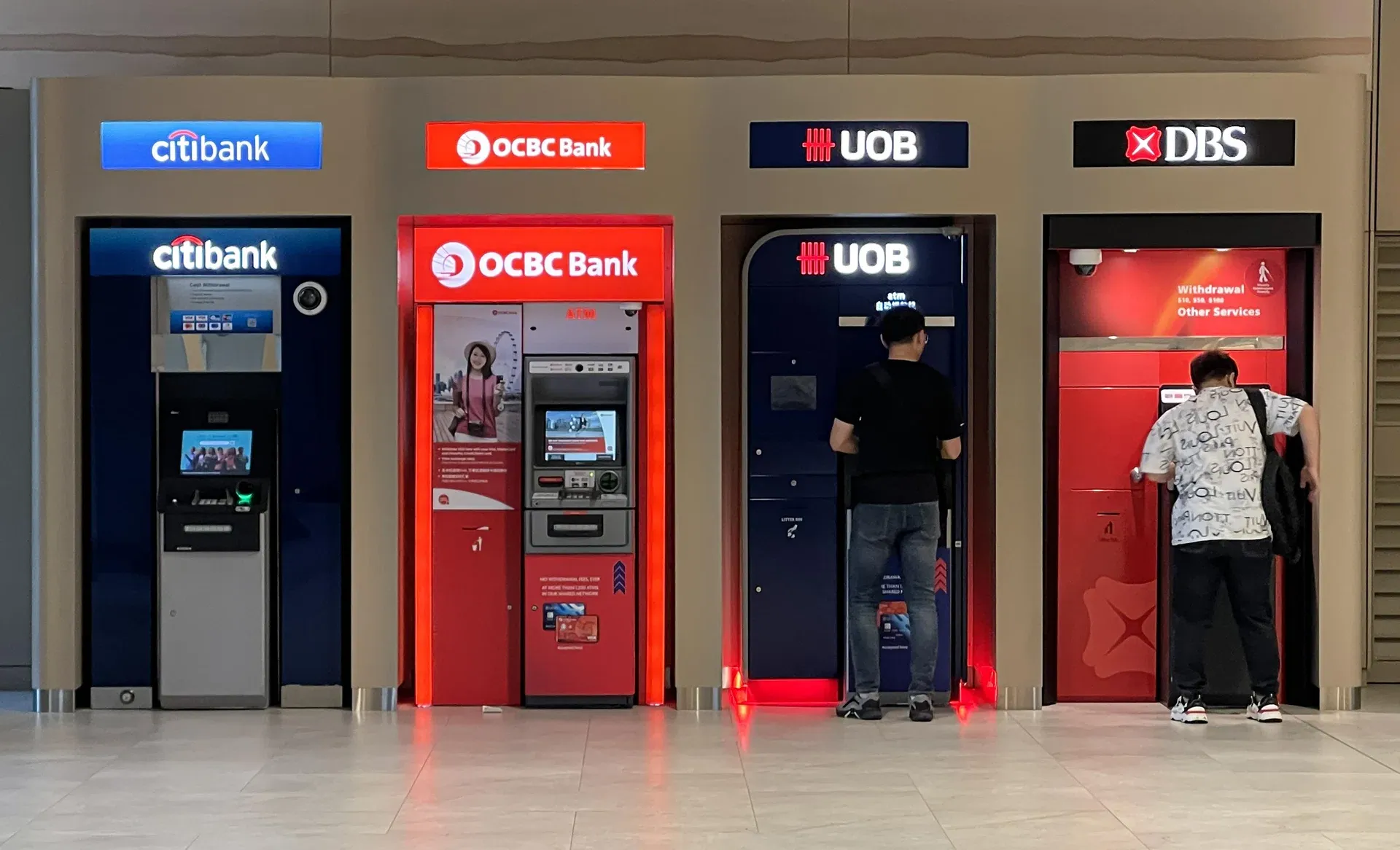Once you’ve incorporated your company in Singapore, you need to open a corporate bank account. It’s legally required and essential for managing your business finances and meeting tax obligations.
Singapore’s banking system is known for its transparency and strict regulations. Banks here are secure but also demanding, especially when it comes to foreign-owned companies.
Why You Need a Corporate Bank Account
After company incorporation, a corporate bank account allows you to:
- Keep business and personal finances separate
- Manage company finances professionally
- Meet Singapore tax requirements
- Maintain proper financial records for compliance
Can Foreigners Open Business Bank Accounts in Singapore?
Yes, but expect it to take much longer than for local companies. Foreign businesses typically wait several weeks for approval because data on foreigners is not easily available from the government information system. Banks conduct thorough due diligence checks to comply with anti-money laundering regulations.
Required Documents
When applying for a corporate bank account, you’ll need to prepare:
- Business Profile from ACRA (Accounting and Corporate Regulatory Authority)
- Passport copies of all directors and shareholders
- CVs or LinkedIn profiles of key directors
- Proof of identity and address for all shareholders, directors, and beneficial owners
What Banks Will Ask You
During the application process, banks want to understand your business. Be prepared to discuss:
- Your business plan and main activities
- Details about your clients and suppliers
- Expected banking transactions
- Sample invoices, contracts, or customer agreements
Most banks will arrange meetings or video calls to verify your business and assess your banking needs.
Also Read: Is Your Company Ready for M&A? Strategic Growth for Expanding Businesses
Choosing the Right Bank

Different banks have varying requirements and procedures. Some require directors to visit in person, while others offer online applications with video verification to save time.
When choosing a bank, you should consider the minimum initial deposit requirements. Some accounts have no minimum requirement, making them suitable for new businesses, while others may require substantial initial deposits.
Look at minimum daily or monthly balance requirements as well. Many banks charge penalties if your balance falls below the required amount, which can impact your cash flow. All business accounts come with fees, so compare fixed monthly charges and see what services they include, such as free transfers or reduced transaction costs.
Choose an account with user-friendly online and mobile banking. Good digital access saves time on administrative tasks and provides better account management.
If you deal with overseas clients or suppliers, look for accounts that offer multi-currency options, foreign exchange services, and international wire transfers at competitive rates. Review costs for common transactions like incoming and outgoing transfers, cash deposits, and ATM usage. Also, check transaction limits to ensure they meet your business needs.
Select a bank that can grow with your business. Consider what additional services you might need as your company expands, such as credit facilities or trade financing.
Opening a Corporate Bank Account Remotely
Foreign business owners who don’t live in Singapore can often apply remotely, though requirements vary by bank. Some banks handle everything online with video calls, while others may require at least one key director to visit Singapore to sign documents.
Remember that only the executive director (business owner) can initiate the corporate bank account application. Other directors cannot begin this process, and you’ll need proper board authorization.
Plan for at least 8 weeks to get your account opened. Banks need this extra time because they have to do more checks on foreign applicants to meet anti-money laundering rules.
Digital vs Traditional Banking Options
When it comes to choosing between digital and traditional banks, the decision often comes down to your business size and complexity.
Digital banks are typically better suited for small businesses and startups. These neo banks offer lower fees, faster account setup, and streamlined services that work well for companies just getting started. They’re generally more welcoming to new businesses without extensive track records.
Traditional banks, on the other hand, tend to prefer established businesses with good track records and proven financial history. They offer more comprehensive services, including corporate loans, trade financing, and relationship management, but they’re often more selective about which companies they’ll work with.
For new foreign companies setting up in Singapore, digital banks often provide an easier entry point into the banking system, while traditional banks become more accessible as your business grows and establishes its track record.
Understanding the Application Process
The application process involves multiple verification steps that banks use to assess your business and risk profile. Banks will want to see evidence of genuine business operations, which is why having contracts, invoices, or agreements with customers strengthens your application significantly.
During bank meetings, be prepared to explain your business model clearly and demonstrate how you plan to use the account. Banks are particularly interested in understanding your expected transaction patterns, as unusual or high-risk activities can complicate the approval process.
Getting Professional Help

Opening a corporate bank account in Singapore involves multiple steps and requirements that can be complex to navigate alone. The documentation requirements are extensive, and different banks have different preferences for the types of businesses they work with.
As your corporate secretarial provider, HC Consultancy can assist with the application process, help prepare required documents, and guide you through bank selection based on your specific business needs.
We understand which banks are more receptive to different types of businesses and can help position your application for success.
Our experience with numerous foreign company applications means we can help you avoid common pitfalls that cause delays or rejections. We also maintain relationships with various banks that can facilitate introductions and smooth the application process.
Also Read: Singapore Budget 2025: A Business-Centric Guide to Cost Savings, Competitive Edge, and Innovation Support
Common Challenges to Avoid
Many foreign companies face delays because they underestimate the preparation required or don’t understand what banks are looking for. Having incomplete business documentation, unclear explanations of business activities, or inadequate proof of business operations can significantly slow the process.
Another common issue is not having proper authorization documentation. Banks need clear evidence that the person applying has the authority to open the account and make financial decisions for the company.
Successful Corporate Bank Account Opening
Getting your corporate bank account opened requires proper preparation and understanding of what banks expect. The process can be complex, but having the right documentation and guidance makes all the difference.
Whether you’re planning to incorporate your company in Singapore or have already set up your business with us, contact HC Consultancy to discuss opening your bank account. We’ll help you get your business operations running smoothly from the start.
FAQs
1. Can Foreigners Open Business Bank Accounts in Singapore Without Being Physically Present?
Yes, foreigners can open corporate bank accounts in Singapore remotely with many banks offering online application processes, including video verification. However, requirements vary by bank. Some may require at least one key director to visit Singapore to sign documents in person. It’s important to check the bank’s specific procedures before applying.
2. What Documents Are Required to Open a Corporate Bank Account for a Foreign Company?
Typically, banks require the following documents:
- Business Profile from ACRA (Accounting and Corporate Regulatory Authority)
- Passport copies of all directors and shareholders
- Proof of identity and residential address for key personnel
- CVs or LinkedIn profiles of directors
- Business plan, details of clients and suppliers, and sample invoices or contracts to demonstrate genuine business operations
3. How Long Does It Usually Take for a Foreign Company to Open a Bank Account in Singapore?
On average, the process can take 8 weeks or more. This extended timeline is mainly due to enhanced due diligence and anti-money laundering checks that banks perform on foreign applicants. Delays are common if documentation is incomplete or unclear.
4. What Are the Differences Between Traditional Banks and Digital Banks for Foreign Businesses in Singapore?
Traditional banks in Singapore offer comprehensive financial services, including corporate loans and trade financing but often require a proven business track record, making them selective. Digital banks, also known as neobanks, typically offer quicker account openings, lower fees, and user-friendly digital platforms, making them attractive to startups and small foreign companies without extensive financial history.
5. Can Someone Other Than the Executive Director Apply for the Corporate Bank Account?
No. Only the executive director or business owner is authorized to initiate the corporate bank account application. Other directors cannot start the process. Proper board authorization is also necessary to validate the application and ensure compliance with the bank’s requirements.
6. What Factors Should I Consider When Choosing a Bank for My Foreign-Owned Company?
Important factors include:
- Minimum initial deposit and balance requirements to avoid penalties
- Fees for account maintenance, transfers, and transactions
- Availability of multi-currency accounts and competitive foreign exchange rates for international business
- Quality of digital banking tools such as online and mobile platforms
- Additional banking services like credit facilities or trade financing that support business growth
- Bank’s reputation and ease of communication, especially for remote account management


